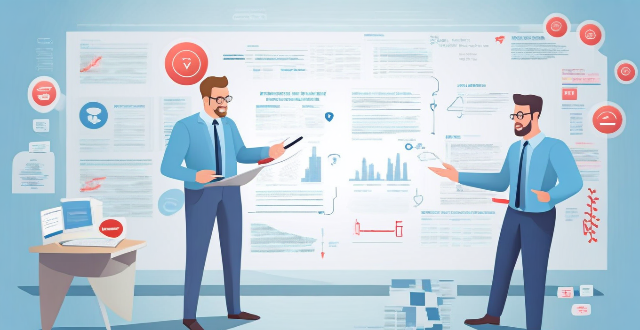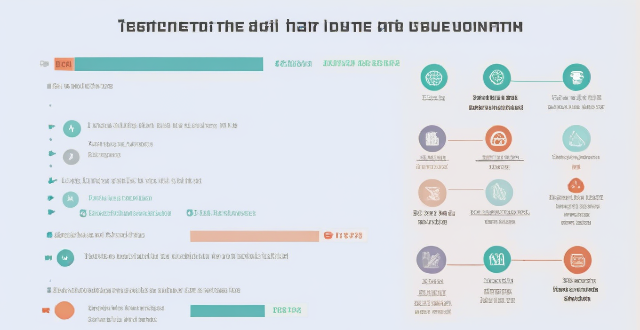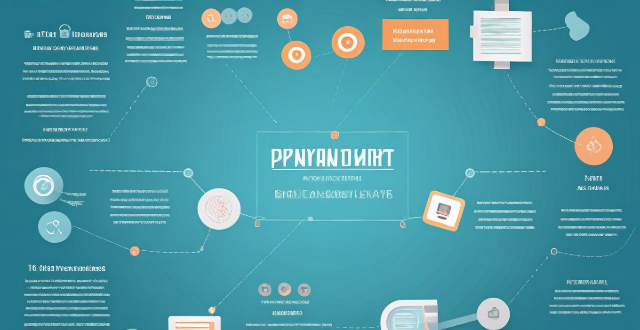Nes Entrepreneur

How can women leverage social media to promote their businesses ?
Social media offers a powerful platform for women entrepreneurs to promote their businesses. To effectively leverage it, they should define their brand story, choose the right platforms, build a strong presence, engage with their audience, collaborate with other women entrepreneurs, utilize influencer marketing, and monitor performance through analytics. By following these strategies, women can harness the power of social media to elevate their businesses, connect with customers, and achieve their entrepreneurial dreams.

What is the correlation between immigration policies and entrepreneurship ?
Immigration policies significantly impact entrepreneurship by influencing talent access, regulatory environments, cultural diversity, and economic opportunities. Talent-friendly policies like Canada's Express Entry System and the U.S. H-1B Visa attract skilled immigrants, enhancing competitiveness. Supportive regulatory frameworks, such as Australia's Business Innovation and Investment Program and the UK's Tier 1 Entrepreneur Visa, simplify business establishment processes. Diversity-promoting policies, like New Zealand's Residence Programme and Germany's Blue Card EU, foster innovative solutions through varied perspectives. Economic opportunities arise from policies like Sweden's Startup Visa and Ireland's Startup Entrepreneur Programme, which create market gaps and support immigrant entrepreneurs. Governments should implement policies encouraging entrepreneurship among immigrants and local populations.

How can women overcome gender bias in the startup world ?
Gender bias is a pervasive issue in many industries, including the startup world. Women face unique challenges when it comes to funding, networking, and building their businesses. However, there are strategies that women can employ to overcome these obstacles and thrive in the startup world. Here are some tips: 1\. Build a Strong Network: Networking is crucial for any entrepreneur, but it's especially important for women who may not have as many natural connections in the industry. Attend industry events, join professional organizations, and connect with other entrepreneurs on social media. Make sure to diversify your network by seeking out people from different backgrounds and perspectives. 2\. Develop Your Skills: Take courses or attend workshops to develop your skills in areas such as finance, marketing, and management. This will not only make you a more well-rounded entrepreneur but also demonstrate your commitment to learning and growing. 3\. Be Confident and Assertive: Women are often socialized to be polite and deferential, which can sometimes hold them back in business settings. Practice being confident and assertive in meetings and negotiations. Remember that you deserve to be taken seriously and that your ideas and opinions are valuable. 4\. Seek Out Mentors and Advisors: Find mentors or advisors who can offer guidance and support as you navigate the startup world. Look for people who have experience in your industry and who share your values and goals. 5\. Leverage Your Strengths: Women often bring unique strengths to the table, such as empathy, collaboration, and creativity. Emphasize these qualities in your pitches and marketing materials, and don't be afraid to highlight how they set you apart from your competitors. 6\. Stay Persistent: Starting a business is hard work, and there will inevitably be setbacks along the way. Stay persistent and focused on your goals, even when faced with rejection or failure. Remember that every challenge is an opportunity to learn and grow. 7\. Advocate for Yourself and Others: Speak up about issues of gender bias and inequality whenever you see them. Use your platform to advocate for change within your industry and support other women who are facing similar challenges. By working together, we can create a more equitable and inclusive startup world for all entrepreneurs.

What strategies can female entrepreneurs use to secure funding for their ventures ?
Female entrepreneurs face unique challenges when it comes to securing funding for their ventures. However, there are several strategies that can be used to increase the chances of success. These include networking and building relationships, developing a solid business plan, leveraging personal networks, seeking out grants and awards, considering crowdfunding, and utilizing online funding platforms. By staying persistent and never giving up, female entrepreneurs can secure the funding they need to bring their dreams to life.

How do women entrepreneurs navigate the legal aspects of starting a business ?
Starting a business as a female entrepreneur involves navigating various legal considerations. This guide offers strategies for handling these aspects, including understanding legal frameworks, protecting intellectual property through trademarks and copyrights, drafting contracts, complying with employment laws, ensuring financial compliance, and managing risks with insurance. By addressing these components systematically, women entrepreneurs can establish a solid foundation for their businesses while minimizing legal risks and ensuring smooth operations.

How do female entrepreneurs balance work and family life ?
Balancing work and family life for female entrepreneurs requires prioritizing time, delegating responsibilities, setting realistic goals, taking care of oneself, communicating with family, and seeking support from others. By implementing these strategies, a healthy balance between professional ambitions and personal responsibilities can be achieved.

What are some examples of successful celebrity personal brands ?
Celebrity personal brands are a powerful tool in the entertainment industry. They allow celebrities to establish themselves as more than just an actor, singer, or athlete. Instead, they become a brand that represents their unique personality, values, and interests. Here are some examples of successful celebrity personal brands: - Oprah Winfrey: known for her philanthropic efforts, media empire, and inspirational speaking. - Kim Kardashian: rose to fame on reality TV, launched multiple successful businesses, and is a social media influencer. - Dwayne "The Rock" Johnson: began as a professional wrestler, transitioned into acting, and is known for his dedication to fitness. - Beyoncé: Grammy-winning musician, fashion icon, and activist for social justice issues. - Elon Musk: founder of several successful companies, innovator, and active on social media despite being a busy CEO.

What kind of expertise do celebrities bring to their roles as entrepreneurs ?
Celebrities often leverage their fame and influence to venture into entrepreneurship. The expertise they bring to their roles as entrepreneurs can vary, but some common areas include name recognition, influence and social media presence, networking opportunities, creative vision, financial resources, public speaking and charisma, negotiation skills, perseverance and resilience, and personal brand alignment. These factors can contribute to the success of their ventures and set them apart from other entrepreneurs.

What are some luxurious lifestyle choices made by celebrities ?
Celebrities are known for their lavish lifestyles and extravagant choices, including owning private islands, driving exotic cars, wearing designer clothing and accessories, and living in mansions and luxury homes. Some famous examples include Richard Branson owning Necker Island, Jay Leno having an extensive collection of over 200 cars, Beyoncé frequently wearing haute couture gowns, and Taylor Swift's mansion featuring a private beach. These luxurious lifestyle choices reflect their wealth, status, and influence.

Can starting a small business be a path to significant wealth growth ?
Starting a small business can be a path to significant wealth growth, but it comes with challenges and risks. Advantages include entrepreneurial opportunities, flexibility, innovation, and job creation. However, financial risk, market competition, regulatory compliance, and cash flow management are potential challenges. Successful strategies involve research, focusing on customer needs, building a strong brand, networking, and continuous innovation. With careful planning and hard work, entrepreneurs can increase their chances of success and achieve long-term financial stability.

What role does mentorship play in the success of female entrepreneurs ?
Mentorship plays a crucial role in the success of female entrepreneurs, providing guidance and support that can help them navigate challenges. It offers access to experienced advice, networking opportunities, confidence building, skill development, accountability, emotional support, and insights into overcoming barriers. Seeking out a mentor can increase the chances of success for female entrepreneurs.

What advice would successful businesswomen give to aspiring female entrepreneurs ?
Advice from successful businesswomen to aspiring female entrepreneurs includes believing in oneself, continuous learning and personal development, embracing risks and challenges, effective financial management, maintaining a work-life balance, collaboration and delegation, strong branding and marketing strategies, and upholding ethical practices and social responsibility. By following this advice, aspiring female entrepreneurs can navigate the challenges of starting and growing their own businesses while staying true to their values and goals.

What are the most common challenges faced by female entrepreneurs ?
Female entrepreneurs face unique challenges, including lackFemale entrepreneurs face unique challenges, including lack funding opportunities due to gender bias limited funding opportunities due to gender bias, work-life balance issues, gender bias in the business environment, and limited support networks. Despite these obstacles, many have successfully overcome them by leveraging their strengths and building supportive networks, advocating for change within their industries.

What are the different types of risks that businesses face ?
The text discusses the various types of risks that businesses may encounter, including strategic, operational, financial, compliance, natural and disaster-related, and reputational risks. It emphasizes the importance of understanding and addressing these risks for effective risk management and long-term business success.

What is the impact of environmental legislation on businesses ?
This article discusses the impact of environmental legislation on businesses, including cost implications, reputation and brand image, innovation and competitive advantage, and legal risks and liability. It highlights the need for businesses to comply with these laws and regulations to avoid negative consequences and position themselves as leaders in sustainability and innovation.

What new possibilities does 5G open up for businesses ?
The advent of 5G technology has ushered in a new era of possibilities for businesses across various industries, offering faster speeds, lower latency, and increased capacity. This topic explores the key opportunities that 5G presents to companies, including enhanced connectivity and real-time data access, expansion of the Internet of Things (IoT), applications of Augmented Reality (AR) and Virtual Reality (VR), improved customer experience, automation and efficiency, and edge computing. With these advancements, businesses can streamline operations, increase efficiency, and drive innovation.

How will the rise of automation and artificial intelligence affect employment opportunities in future cities ?
The rise of automation and artificial intelligence (AI) is expected to have a significant impact on employment opportunities in future cities. This transition will likely result in decreased demand for certain jobs, particularly those involving repetitive tasks or moderate skills, while increasing the need for specialized skills in areas like software development and data analysis. To adapt to these changes, strategies such as lifelong learning, job retraining programs, and collaboration between businesses and educational institutions are recommended. It is crucial for individuals, governments, and businesses to proactively prepare for these shifts to ensure a diverse and resilient workforce.

Can smart contracts be used in traditional businesses ?
Smart contracts, self-executing contracts with terms written into code, can be used in traditional businesses but have limitations such as legal issues and complexity. They offer advantages like transparency, efficiency, and security but also present challenges like lack of human touch and privacy concerns. Businesses should carefully consider their specific needs before adopting this technology.

How can businesses benefit from implementing digital identity solutions ?
Digital identity solutions offer businesses enhanced security, improved customer experiences, increased efficiency, and scalability. They reduce fraud risks, protect data, streamline onboarding, personalize services, automate processes, and provide reliable data for better decision-making. These benefits help businesses stay compliant with regulations, save costs, and adapt to evolving technology.

What is the impact of safety regulations on small businesses ?
Safety regulations have significant impacts on small businesses, including increased costs, time consumption, compliance difficulties, and potential legal consequences. Small businesses often face challenges in implementing safety measures due to limited resources and knowledge. It is crucial for them to find a balance between maintaining safety standards and managing their resources effectively.

What are the benefits of implementing energy conservation and emission reduction policies in businesses ?
Implementing energy conservation and emission reduction policies in businesses can bring numerous benefits. These benefits include environmental protection, cost savings, increased efficiency, competitive advantage, government incentives, investor appeal, improved public image, job creation, and positive community impact. By adopting these policies, businesses can contribute to a more sustainable future while also enhancing their own success and growth potential.

How has the issue of climate change impacted international trade and commerce ?
Climate change has significant impacts on international trade and commerce, including disruptions to supply chains due to extreme weather events, changes in agricultural production affecting food security and prices, infrastructure damage leading to increased costs for businesses, rising energy costs as countries transition to renewable sources, carbon emissions regulations requiring companies to invest in new technologies, and changing consumer behavior demanding sustainable products. Businesses must adapt to these changes to remain competitive and ensure long-term sustainability.

How does AI technology contribute to analyzing product reviews ?
AI technology has revolutionized the way businesses analyze product reviews by providing advanced tools and techniques that enable efficient and accurate analysis. From natural language processing and machine learning to deep learning, AI offers various approaches to extracting valuable insights from customer feedback. By leveraging these technologies, businesses can gain a deeper understanding of customer needs and preferences, identify areas of improvement, and make data-driven decisions that drive growth and success.

Have there been any notable failures in celebrity-backed businesses ?
Celebrities often endorse or start businesses, but not all ventures are successful. Notable failures include Donald Trump's casino business, Justin Bieber's clothing line, Mariah Carey's beauty line, Gwyneth Paltrow's lifestyle brand, Lindsay Lohan's fashion line, Jessica Simpson's fashion line, Ivanka Trump's jewelry line, Kim Kardashian's video game, George Foreman's grilled cookies, and Shaquille O'Neal's food line. These examples show that celebrity endorsement or ownership doesn't guarantee success in the business world.

How has the COVID-19 pandemic affected ESG priorities for businesses ?
The COVID-19 pandemic has significantly impacted businesses worldwide, affecting their operations, financial performance, and strategic priorities, particularly in the area of Environmental, Social, and Governance (ESG) priorities. The pandemic has led to an increased focus on sustainability, a shift towards remote work, health and safety concerns, mental health support, transparency and accountability, and stakeholder engagement. To address these challenges, businesses should conduct a comprehensive ESG assessment, develop a sustainability strategy, implement health and safety measures, offer mental health support, increase transparency and accountability, and engage with stakeholders. By taking proactive steps to address these challenges, businesses can improve their ESG performance and build resilience and adaptability in the face of future crises.

What is mobile marketing and why is it important ?
Mobile marketing is the use of mobile devices to promote products or services. It involves sending targeted messages, offers, and advertisements to users who are on the move, in real-time. This type of marketing can be done through various channels including SMS, email, social media, apps, and mobile websites. Mobile marketing is important for several reasons: 1. Reach a Wider Audience: With the increasing popularity of mobile devices, businesses can reach a larger audience through mobile marketing. 2. Higher Engagement Rates: People spend more time on their mobile devices than any other medium, making them more likely to engage with your content and respond to your calls-to-action. 3. Increased Conversion Rates: Mobile marketing allows businesses to target their audience based on location, behavior, and preferences, resulting in higher conversion rates. 4. Improved Customer Loyalty: By providing personalized experiences and offers through mobile marketing, businesses can build stronger relationships with their customers and increase loyalty. 5. Cost-Effective: Compared to traditional marketing methods, mobile marketing is often more cost-effective with a higher return on investment (ROI). 6. Real-Time Tracking and Analytics: Mobile marketing provides businesses with real-time data and analytics about their campaigns, allowing them to make informed decisions and optimize their strategies for better results. 7. Enhanced Brand Recognition: By using mobile marketing, businesses can create a strong brand identity and increase brand recognition among their target audience. 8. Stay Ahead of the Competition: As more businesses adopt mobile marketing strategies, those who do not will fall behind. Staying ahead of the competition is crucial for long-term success.

What are the benefits of implementing resource-efficient utilization in businesses ?
The benefits of implementing resource-efficient utilization in businesses include cost savings, environmental sustainability, competitive advantage, and risk mitigation. By reducing waste and improving resource management, companies can lower their operating expenses and increase profitability. Additionally, conserving resources and reducing waste can minimize a business's impact on the environment and contribute to a more sustainable future. Implementing these practices can also provide a competitive advantage by demonstrating a commitment to sustainability and social responsibility, attracting customers, employees, and investors who value these principles. Finally, resource-efficient utilization can help businesses mitigate risks associated with resource scarcity, price volatility, and regulatory changes, ensuring stable operations and a reliable supply chain.